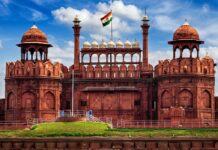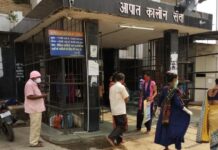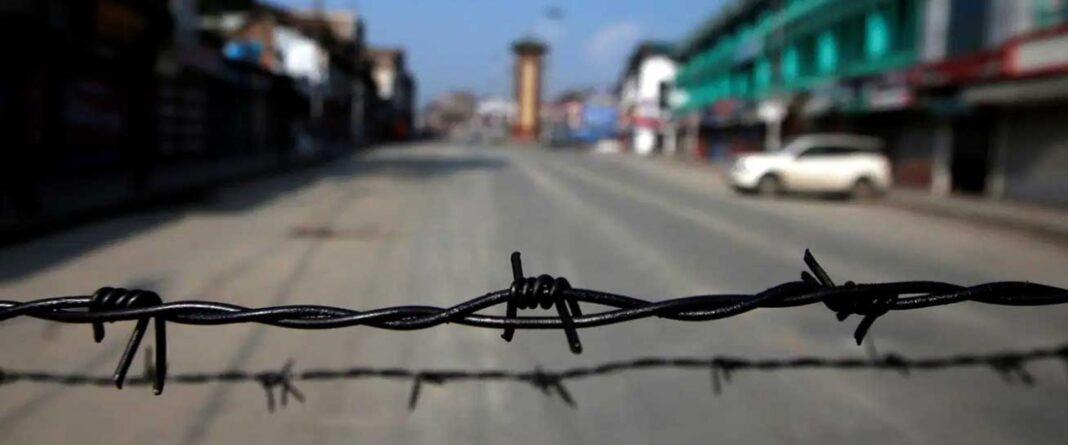Centre’s belief that it can ride rough shod over the feelings of the people is
grossly undemocratic, unjustified and in the long run impracticable.
A week is a long time in political affairs and statecraft. But two years is unconscionably too long by any stretch of imagination. The unilateral non-movement on Jammu and Kashmir’s Constitutional status imposed by the Central government in Delhi with the abrogation of Articles 370 and 35A for two long years is inexplicable. The simultaneous freeze on any Supreme Court move on the issue further confounds the confusion.
For the Centre in Delhi to believe that the core issue will go away with the passage of time only proves, if any proof is needed, how distant (door) is J&K from Delhi. But this distance (doori) is avoidable and must be avoided for any long term peace in the state, currently designated as two Union Territories of J&K and Ladakh. The problem will not go away unless tackled
head-on and in right earnest. The ruling Centre’s belief that it can ride rough shod over the feelings of the people of the area is grossly undemocratic, unjustified and in the long run impracticable. If foisted upon the people now, it will come back to haunt in the pretty near future.
Like it or not, it is a human rights issue. The American Secretary of State Antony Blinken on his recent flying visit to India left a coded message on the issue without any endorsement of happenings in the country. Technically J&K may be an internal issue of India brooking no interference from any outside quarter, yet it is hanging fire and is unlikely to go away any time soon.
In home ground Jammu and Kashmir the voices of dissent are loud and clear. The five-party Gupkar alliance, including the National Conference and the Peoples Democratic Front, came out with a frontal attack on the prevailing dispensation in the bifurcated state. On the eve of the second anniversary of bifurcation, Gupkar alliance spokesman M Y Tarigami thundered: “Unconscionable suppression of civil and democratic rights continues unabated, indiscriminate arrests and harassment of all sections of our people, including employees, on different pretexts continues.”
Commenting on the situation in J&K, the former Supreme Court Judge Justice Madan B Lokur and former Kashmir interlocutor Radha Kumar warned that “human rights abuses will continue unchecked till J&K remains under a Lieutenant-Governor administration and without an elected government.” Justice Lokur and Kumar who heads the Forum for Human
Rights in J&K said, “Most of the rights violations, including arbitrary detentions, prohibition on assembly, remain valid still. Close to 1,000 people are still in prison, including minors and elected legislators. The J&K administration added a new vigilantism against government employees, whose social media content is now subject to police scrutiny for “anti-national activities, potentially leading to dismissal. Eighteen government employees have already been dismissed.”
A sad commentary on the state of affairs!
There is no substitute for grassroots people’s cooperation. Governance with a bureaucracy drawn from outside the state is a recipe for alienation.
The hope offered by the Central government’s outreach to Kashmiri leaders by inviting them for a dialogue in Delhi on 24 June proved short lived. There was no word of any confidence building measures right till August 5, the second anniversary of the bifurcation of the state into two Union Territories. Instead, the process of alienation looks set to gain yet more fillip. There is talk of delimitation of constituencies and holding elections which in the absence of any meaningful steps would amount to putting the cart before the horse.
There is no change on the ground over a month after the Prime Minister’s so-called outreach on June 24 in Delhi. It looks like a false dawn. Far from taking any conciliatory steps or confidence building measures, the BJP, the Centre’s proxy in J&K, is beating the drum of “Naya Kashmir” or new Kashmir. “People have started questioning those in authority as to what they have achieved by destroying Kashmir which came into being through protracted historical struggle of the people of J&K, lamented Gupkar alliance spokesman Tarigami. The alliance also alleged that the Centre had crossed all Constitutional limits by demolishing the Constitution of Jammu and Kashmir.
“By downgrading a historic state and dividing it into two separate Union territories without the consent of the people and also ignoring the resolution adopted by J&K legislature on March 3, 2004, to preserve the unity and secular character of the state, the government has set a precedent that any state can cease to exist as a state and can be carved up into any number of fragments any time by placing it under the governor’s rule.”
The BJP hit back by saying there is no place for antinational elements or those spreading terrorism in “Naya Kashmir”The main focus of the government in the last two years has been to empower people at the grassroots level by holding elections of block development councils and district development councils and providing them with funds, according to
party spokesman Altaf Thakur. "There has been action against anti-national elements. This is our vision of NayaKashmir,” he averred.
Sad to say dissent as anti-national has become the Naya norm of the BJP rank and file. But it won’t wash. Nor will the raking up of petty cases against dissenters cut any ice. Nor will digging up of petty cases against PDP leader Mehbooba Mufti’s mother help mend any situation. Mehbooba was a paragon of virtue when she was the lead partner of BJP alliance government in Jammu and Kashmir. Now she, her mother and anybody associated with
them, are pariahs!
The issues at stake are much wider. They concern not just J&K and India but have cross-border ramifications. As former chief minister Farooq Abdullah has just reiterated there is "no substitute" for dialogue between India and Pakistan. A consistent, coherent and serious engagement between the two nations is essential for any lasting peace in the sub-continent. He emphasis that he had all along been a votary of Indo-Pak dialogue and that the dialogue should pursue confidence building measures, including cross-LoC trade through a proper banking mechanism, doing away with the patchy barter system. "Both the nations, as I have maintained all along, have to love side by side. It is up to them, if they want to live as enemies or supportive friends and partners in development… If the ties between the two nations were to improve, then they have to come out of their shells and narrow down their differences and source of conflict."
On the strictly limited dialogue between Delhi and Kashmir, Farooq Abdullah went further in the current round of statements when he voiced a reminder: “Trust is something that has been missing from both sides (Delhi and Srinagar). Successive prime ministers – Jawaharlal Nehru, Narasimha Rao, Atal Bihari Vajpayee – made promises but the trust deficit has persisted.”
Curiously enough Farooq Abdullah himself during his three stints as chief minister did not do enough for the return of Kashmiri pandits to the Valley, a confidence building measure that would have gone a long way in reducing the double-edged turbulence in Jammu and Kashmir. A timely big push in that direction, perhaps, could have blunted the onslaught of BJP’s divisive agenda.
Disclaimer: We do undertake rigorous checks on content provided by contributors before publishing the same. If you come across some factual errors, kindly bring this into our notice and we shall review your objection and claim as per our policy and display correction credits and corrections on the article itself.
The opinion expressed in the article is of the writer. Writer is a freelance journalist/journalist based in Delhi




























